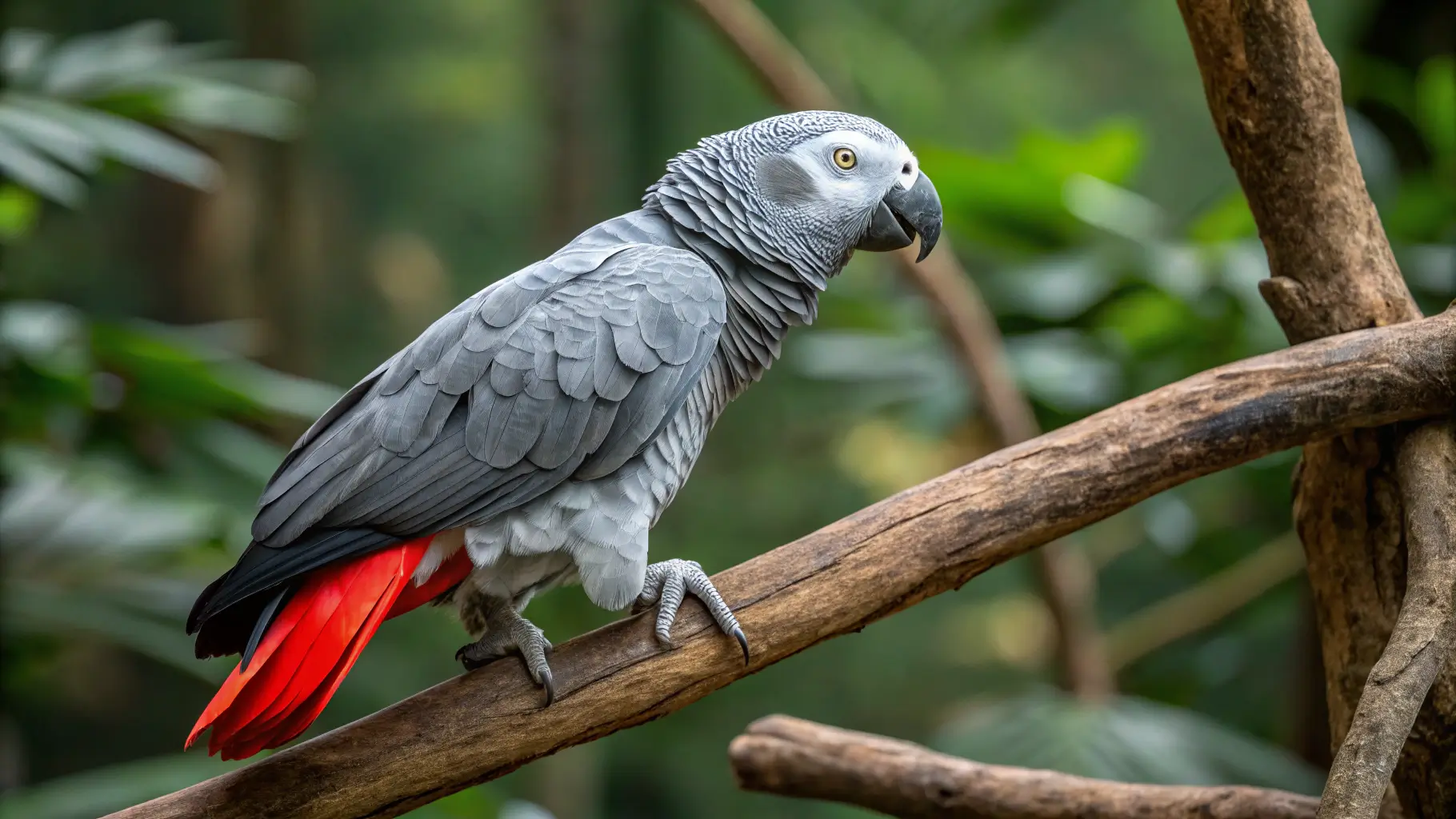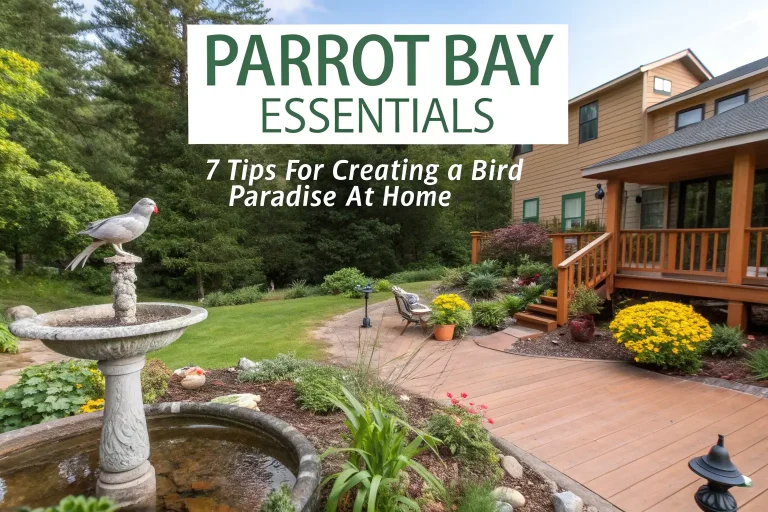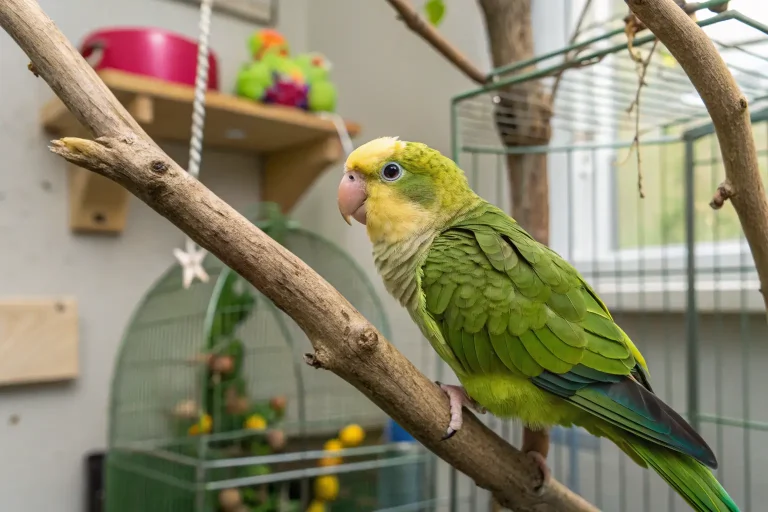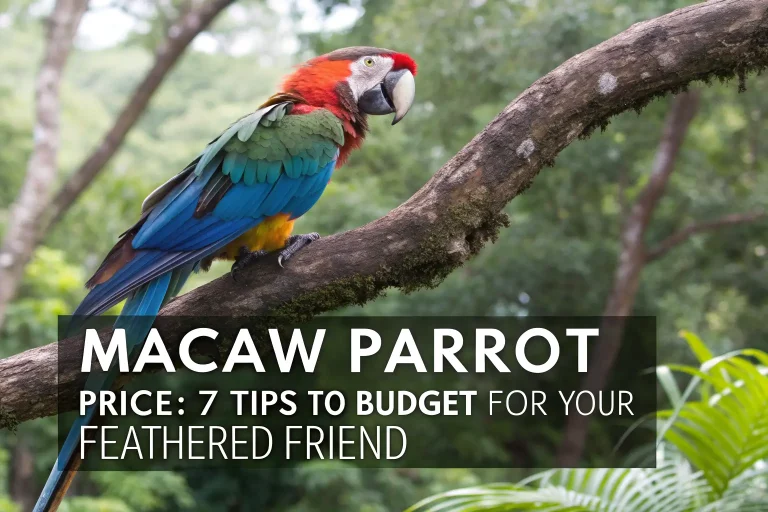African Grey Parrot Price: 4 Costs New Owners Don’t Expect
African Grey parrots are undoubtedly one of the most captivating and intelligent companion birds. Their ability to mimic speech, bond deeply with their owners, and display rich personalities make them immensely appealing. However, these remarkable qualities also come with a significant commitment, both in terms of time and financial resources.
To give you a quick answer upfront: the typical purchase price for an African Grey parrot ranges from $1,500 to $3,500, depending on a variety of factors we’ll explore in this comprehensive guide. But the bird itself is just the starting cost – there are essential setup expenses, ongoing annual costs, and potential emergency vet bills that can quickly add up over the lifetime of these long-lived parrots (40-60 years!).
In this article, we’ll dive deep into the complete financial picture of owning an African Grey, from initial acquisition to the day-to-day care. By the end, you’ll have a clear understanding of what to budget for and be equipped to make an informed decision about whether this incredible bird is the right fit for your lifestyle and finances.
What is the Purchase Price of an African Grey Parrot in 2024?
Congo African Grey Price Range:
Congo African Greys, the more commonly found subspecies, typically range in price from $1,500 to $3,000. This broader price span is largely due to the immense popularity of Greys, which drives up demand and costs, especially for birds perceived to have supehttps://www.animalfriendfacts.com/wp-content/uploads/2024/06/woman-traveling-in-france-2023-11-27-05-16-47-utc_Easy-Resize.com_.jpgr talking ability.
Timneh African Grey Price Range:
The slightly smaller Timneh African Grey generally costs a bit less, with a typical price range of $1,200 to $2,500. Timnehs tend to start talking a bit earlier than their Congo counterparts, but the overall talking ability is similar.
Factors Directly Influencing Purchase Price:
- Age: Baby/unweaned Greys are the most expensive, often $2,000 or more. Weaned juveniles range from $1,500 to $2,500, while adult Greys usually cost $1,200 to $2,000.
- Source: Reputable, experienced breeders typically charge the highest prices, sometimes $2,500 or more. Pet stores have a wide range, $1,500 to $2,500, depending on the store’s practices. Rescues and sanctuaries offer the lowest fees, often $1,000 or less.
- Breeder Reputation & Practices: Breeders with a proven track record, health guarantees, carefully socialized birds, and documented lineage can charge premium prices. Irresponsible breeders may offer lower costs but risk health/behavioral issues.
- Health & Vet Checks: Birds that have received comprehensive vet exams, disease testing (like PBFD and Psittacosis), and a clean bill of health will cost more than those without any medical history.
- Tameness & Socialization: Hand-raised, extensively socialized Greys are the most desirable and expensive, $2,000+. Parent-raised birds are less costly, $1,500 to $2,000. Untamed, unsocialized Greys are the least expensive, around $1,000 or less.
- Location/Region: African Grey prices can vary significantly by geographic region. In the United States, they tend to cost more on the coasts than in the Midwest. Prices are generally higher in the UK compared to North America.
- Paperwork: Any required CITES documentation or extensive hatch paperwork will add to the upfront cost.
- Demand: Current market trends and fluctuations in supply and demand can also impact African Grey prices in any given year.
Beyond the Bird: Essential Initial Setup Costs
The Purchase Price is just the tip of the iceberg when it comes to the financial commitment of owning an African Grey parrot. There are several essential initial setup costs to consider:
- The Cage: Your Biggest Initial Investment
A proper cage for an African Grey is crucial for their health and well-being. Recommended minimum dimensions are 30 inches wide x 30 inches deep x 40 inches tall, with bar spacing no greater than 3/4 inches. High-quality powder-coated or stainless steel cages typically range from $200 to $1,000. - Perches, Food/Water Bowls
You’ll need a variety of perches (wood, rope, cement) and stainless steel food/water bowls, costing $20 to $100. - High-Quality Pellet Diet & Initial Food Supply
Parrots require a nutritious, predominantly pellet-based diet. Expect to spend $50 to $150 on the initial supply. - Toys (Essential for Mental Stimulation)
African Greys are incredibly intelligent and destructive – they need a rotating selection of foraging, shredding, and wooden toys, costing $25 to $100. - Initial Avian Vet Wellness Check
Before bringing your new Grey home, a comprehensive veterinary exam and basic tests (like for PBFD) are essential. Plan to spend $50 to $200. - Travel Carrier
A suitable pet carrier for trips to the vet will run you $20 to $50. - Cleaning Supplies
You’ll need bird-safe cage and surface disinfectants, costing around $10.
Sub-Total Initial Setup Estimate: African Grey Parrot Price
| Item | Estimated Cost Range |
|---|---|
| Cage | $200 – $1,000 |
| Perches, Bowls | $20 – $100 |
| Initial Food | $50 – $150 |
| Toys | $25 – $100 |
| Vet Exam | $50 – $200 |
| Carrier | $20 – $50 |
| Cleaning Supplies | ~$10 |
| Total | $365 – $1,600 |
The Long Haul: Ongoing Annual Costs of Owning an African Grey
While the initial setup can be significant, the yearly expenses of caring for an African Grey are also substantial and require careful budgeting. Here’s what to expect:
- Food (Pellets, Fresh Veggies/Fruits, Treats)
A high-quality pellet-based diet supplemented with fresh produce is essential. Expect to spend $300 to $500 annually. - Toys (Replacement & Rotation)
African Greys are voracious chewers, so you’ll need to regularly replace and rotate their toys. Budget $100 to $200 per year. - Annual Vet Checkups
Preventative care with an avian vet, including wellness exams and basic testing, will cost $100 to $200 annually. - Emergency Vet Fund / Pet Insurance
Greys can be prone to certain health issues, so setting aside $200 to $1,000 per year for an emergency fund or pet insurance premiums is highly recommended. - Cage Liners / Cleaning Supplies
Ongoing costs for cage liners, disinfectants, and other cleaning materials will be around $20 to $50 per year. - Potential Grooming
If you can’t trim your Grey’s nails and wings at home, professional grooming may cost $50 to $150 annually.
Sub-Total Ongoing Annual Estimate:
| Item | Estimated Annual Cost |
|---|---|
| Food | $300 – $500 |
| Toys | $100 – $200 |
| Vet Checkups | $100 – $200 |
| Emergency Fund/Insurance | $200 – $1,000 |
| Cage Liners/Supplies | $20 – $50 |
| Grooming (if needed) | $50 – $150 |
| Total | $770 – $2,100 |
Where to Buy or Adopt an African Grey: Pros, Cons & Cost Implications
Reputable Breeders
Pros: Known breeding history, health guarantees, well-socialized birds.
Cons: Highest purchase price, potential waitlists.
Cost Focus: High initial cost, but potentially lower vet bills down the line.
Parrot Rescues & Sanctuaries
Pros: Lower adoption fees, giving a home to a bird in need, potentially already tamed.
Cons: Unknown history, potential behavioral issues, rigorous application process.
Cost Focus: Lower upfront fee, but potentially higher initial vet/behavioral costs.
Pet Stores
Pros: Availability (if that’s a pro).
Cons: Often unknown breeding/health history, potential impulse buy risk.
Cost Focus: Variable pricing, but high risk of hidden health/socialization costs.
Rehoming from Private Owners
Pros/Cons similar to rescues, requires careful vetting.
Estimated Lifetime Cost of Owning an African Grey
To calculate a rough lifetime cost estimate for an African Grey, let’s use a mid-range purchase price of $2,000, along with the earlier cost estimates:
- Purchase Price: $2,000
- Initial Setup: $1,000
- Annual Costs (averaged): $1,500
- Estimated Lifespan: 50 years
Total Estimated Lifetime Cost: $80,000
This $80,000 figure represents a significant investment, but it reflects the incredible commitment required to provide an African Grey with the care, enrichment, and veterinary support they need over their long lifespans. Budgeting responsibly from the start is crucial.
Red Flags & Avoiding Scams
When shopping for an African Grey, be wary of the following red flags:
- Prices that seem “too good to be true” – these birds are not cheap, and severely discounted prices often indicate an unethical source.
- Sellers demanding full payment upfront without the opportunity to meet or see the bird in person.
- Lack of health records, veterinary documentation, or a health guarantee.
- Unweaned babies being sold to inexperienced owners – this is an ethical concern.
- Missing CITES paperwork (where required for import/export).
Is an African Grey Right for You? Beyond the Price Tag
While the financial commitment is significant, the non-financial demands of owning an African Grey are equally important to consider. These highly intelligent, vocal, and destructive parrots require:
- Extensive daily interaction and mental stimulation to prevent boredom and behavioral issues
- A large, secure cage in a quiet, low-traffic area of your home
- Tolerance for the constant noise, mess, and potential for property damage
- Patience and consistency in training and socialization
Before committing to an African Grey, make sure you have the time, space, and lifestyle to provide the specialized care they need. Reach out to experienced owners or our detailed African Grey Care Guide to learn more.
Investing in a Lifetime Companion
Owning an African Grey parrot is a sehttps://www.animalfriendfacts.com/wp-content/uploads/2024/06/woman-traveling-in-france-2023-11-27-05-16-47-utc_Easy-Resize.com_.jpgus undertaking, both financially and in terms of the lifelong commitment required. But for those who are prepared to meet their complex needs, these incredible birds can be the most rewarding, intelligent, and loving companions.
By thoroughly understanding the full scope of costs – from the initial purchase to the ongoing annual expenses and potential emergencies – you can budget responsibly and make an informed decision about whether an African Grey is the right fit. Remember, these parrots are a decades-long investment, so plan accordingly.
If you’re ready to welcome an African Grey into your life, we wish you the best of luck in finding the perfect feathered friend. And don’t forget to share this comprehensive cost guide with anyone else considering the joy and challenge of owning one of these remarkable birds.
Frequently Asked Questions
Q: How much is a baby African Grey parrot?
A: Baby, or unweaned, African Greys are typically the most expensive, often ranging from $2,000 to $3,000 or more.
Q: Is a Congo or Timneh African Grey more expensive?
A: Congo African Greys tend to cost slightly more than Timneh Greys, with typical price ranges of $1,500 to $3,000 and $1,200 to $2,500, respectively.
Q: Why are African Greys so expensive?
A: African Greys are in high demand due to their intelligence, talking ability, and popularity as companion birds. Their long lifespans, specialized care requirements, and the costs associated with responsible breeding and socialization all contribute to their higher prices.
Q: What’s the cheapest way to get an African Grey?
A: Adopting from a reputable parrot rescue or sanctuary typically offers the lowest upfront costs, with adoption fees often ranging from $1,000 or less. However, these birds may have unknown histories and potentially higher initial vet or behavioral expenses.
Q: Are there payment plans for African Greys?
A: Most reputable breeders and stores do not offer payment plans for African Greys. However, some veterinary clinics or third-party financial services like CareCredit may provide options to help spread out the initial costs.
This version is now filled with sample costs




